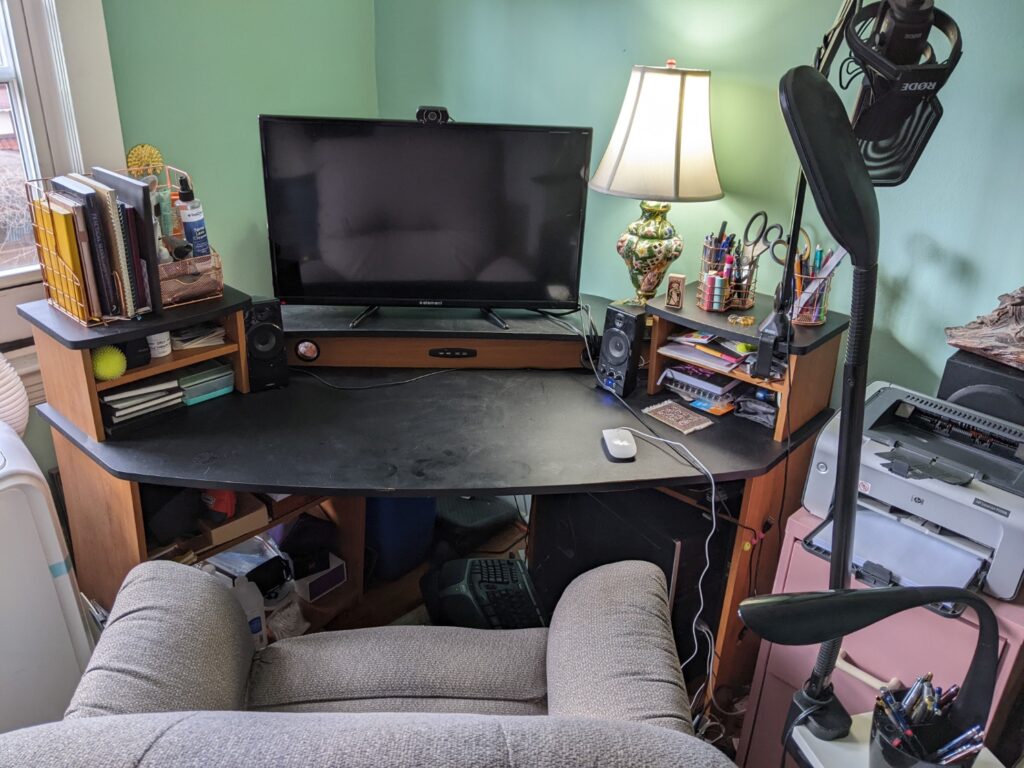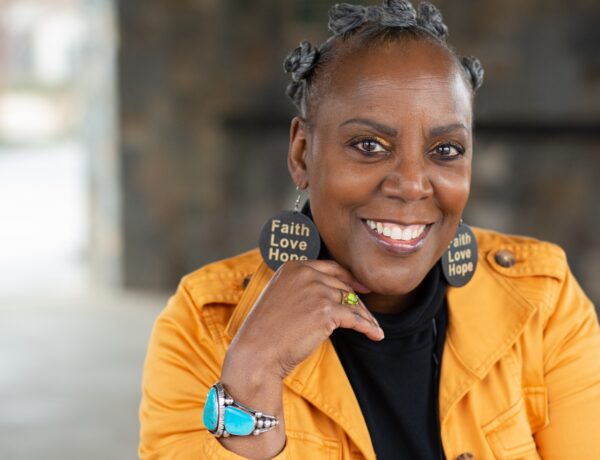Kit Alloway is a young adult author and teacher based in Cleveland Heights, Ohio. With three published YA sci-fi novels and a passion for teenagers, she teaches short story writing at the Young Writers Workshop in Louisville, KY.
In addition to writing, Kit is a talented editor and is currently working on several new projects. Despite facing challenges in her writing journey, she is dedicated to her craft and continues to inspire and captivate readers through her writing.
Each week, we publish a new daily writing routine from a famous author. Subscribe to our newsletter so you don’t miss out!
Hi Kit! We’re delighted to have you as a guest on Famous Writing Routines. For our readers who may not be familiar with your work, could you please give us a brief introduction to yourself?
Thanks so much for having me. I write primarily for teenagers, and my three published novels are YA sci-fi. I also edit part-time. I’m currently working on a YA historical novel about nuns during the bubonic plague in England, a retelling of The Island of Doctor Moreau that takes place in the future, and I’m dabbling in some other genres.
Unfortunately, I got very sick while writing my third novel in 2015, and I had a crisis in confidence from which I haven’t recovered. I’d like to pretend that my writing life is happy and healthy again, but I think there’s value in telling the truth. Maybe some other writer who’s had their writing routine completely fall apart will read this and know they aren’t alone.
Once I finished my third novel, I began having panic attacks every time I sat down to write. After several years of struggling, I moved to Ohio and found a therapist, and we’re working through the issues surrounding my writing.
I know that most people dream of being published – I did, too, at one time – but the actual experience just brought up a paralyzing fear of being seen that has prevented me from writing much of anything. I’m writing a bit more often again now, but it’s a slow process of rebuilding my confidence.
Growing up with a professor and film historian as parents, how do you think your upbringing influenced your choice to become a writer?
I think they did an amazing job of encouraging intellectual curiosity and creativity. My sister and I were forbidden to play video games but were given all the books we wanted. My father read to us every morning and every evening until I was almost thirteen, and special occasions were always celebrated with a trip to the movies.
Storytelling was highly valued in our home, and my father’s written a few novels of his own. My mother believes deeply in the importance of liberal arts education, so she’d ask us what I called “critical thinking” questions. Like if a character on TV told a lie, she’d wait until the commercial and then ask, “When do you think it’s acceptable to lie?” She’d point out the ways in which advertisements were manipulative; she’d dissect the underlying assumptions of films; her field is communications.
My sister and I mocked her mercilessly while growing up, but I appreciate that she taught me to think things through on a deeper level. If you look at my writing, there’s a certain subversiveness that I credit Mom for developing in me.
How do you think your location in Cleveland Heights, Ohio has influenced your writing? Do you find inspiration from the place you live in?
I didn’t move to Cleveland until 2017. Most of my life, I lived in Louisville, Kentucky. Both cities have great writing communities. I would hesitate to say that either place has influenced my writing a great deal, to be honest.
Can you tell us about your experience teaching short story writing at the Young Writers Workshop in Louisville, Kentucky? How does teaching affect your writing style?
I loved teaching at the YWW. I was also a student there for three summers as a teenager, so it meant a lot to me to go back and teach playwriting and short fiction. The kids were just so funny and enthusiastic and full of life. Some of the ideas they came up with were so wild and ridiculous, and I found that freeing in my own writing, that reminder that you can tell any story you want any way you want.
I think it was also a great opportunity to stay connected to the younger generation. That’s especially important for YA authors, because being a teenager has changed a great deal just in the twenty years since I was one.
I’ve also taught fiction and memoir writing to adults. I love teaching. I’m very craft-oriented, and I find a lot of value in breaking down techniques and texts. But I’m also a firm believer that rules are meant to be broken. I just think you should learn them first.
I’d love to learn more about your creative method. What is your process for creating a new story or novel?
My process is in flux right now. I wrote very consistently for many years, and then my confidence and my process broke down completely during the writing of my third novel, Dream Forever, and since then I’ve been trying to rebuild.
I think I’m starting to accept that my new writing process might look nothing like my old one did. What hasn’t changed is that all my stories begin with asking questions—the What if? game. I still watch a lot of TV and movies, especially non-fiction, and I read a lot of non-fiction articles, and I just combine ideas that lead me to concepts.
Once I have an idea, I feel around for a character. I dig around for who resonates with me. This part is hard to describe, and I’ve had other writers tell me they find it unusual. I have to get a sense of who the person in the story is at their core, but that core seems to develop spontaneously, and it’s up to me to whittle away at the image in my head until I reach the right character. I often create extensive character files, take personality tests as my characters, write psychological profiles, even sketch their outfits and try out their hobbies.
I used to write a story by beginning with the first scene and going from there, but since my writing process broke down, I’m not sure that’s how I work any longer. I’m trying to make writing less anxiety-producing by making the process more diffuse, so if I want to write one scene before another, I do.
If I can see a particular moment very clearly, I type it into my phone. I worry less about order and pacing, because writing is hard enough without all that pressure to do things the “right” way. It’s important to just get that first draft down, so I’m skipping scenes I don’t know how to write yet. I’m revising at will, I’m trusting that somehow all of it will work out.
I’ve never been a planner. I don’t plot ahead except in a vague sort of way. I usually know what will happen in the next couple of chapters, and I have an idea of what’s going on with all my characters, but I don’t necessarily know where any of it will lead. Usually the ending becomes clearer about halfway through. If I don’t know what to write, I ask myself, “What would this character do next?” This both adds realism to the character and makes them the driving force of the story, but it sometimes takes the story in directions I don’t expect.
What hasn’t changed is that I edit extensively. I spend about 75% of my time on project editing and only 25% on the first draft. This frees me up to write a really terrible first draft because I know I’m going to fix it later. Getting that first draft down is the hardest part.
Discover the daily writing habits of authors like Stephen King, Neil Gaiman, and Gillian Flynn with Famous Writing Routines Vol. 1 and learn how to take your writing to the next level. Grab your copy today!
What does a typical writing day look like for you?
I used to write from 10 p.m. to 2 a.m. six nights a week. That was my habit for many years. Now, however, I feel very intimidated by that schedule—I even feel intimidated by my office. So I’m learning to write in other places at other times. Cleveland Heights has an amazing library system, as does Cuyahoga County, so I often go to the library to write.
I write with an #AmWriting group every Friday at the library. During NaNoWriMo (National Novel Writing Month), I try to attend four or five local write-ins a week; I find myself driving all over Cleveland to meet with people.
Being a coffee lover, I frequently write in coffee shops, and we have a lot of great ones in Cleveland Heights. Lately I’ve been writing on my living room couch quite a bit. Because my health isn’t great, I sometimes write in bed on my phone. But I still prefer to work at my desk when I can overcome my anxiety around it.
Can you tell us about your experience with writing for children and young adults? How does writing for a younger audience differ from writing for adults?
The distinction between YA and adult fiction keeps getting less and less clear. I think that – by and large – YA features teenage characters and is intended to appeal to a teenage audience, but those rules aren’t hard and fast. (Forty percent of YA readers are adults.)
I’ve always been fascinated by the experience of being a teenager and living through a period of time when you’re expected to make decisions that will affect the rest of your life, but you don’t really have the knowledge to make them or the agency to see them through. It’s a paradoxical time in life. But I have great respect for teenagers. I genuinely like being around them, which I guess is rare for some reason.
I don’t write down to teenagers; they have the right to hear what life is really like. As for writing for younger demographics, I don’t do it. I wrote a middle grade novel years ago, and it was far too dark and cynical for kids. Teenagers can handle that kind of thing. I haven’t published any of my writing for adults, but I think the main difference between it and my YA is just the amount of swearing my characters do.
Do you have any advice for aspiring writers on developing a consistent and productive writing routine?
I’m not sure I’m qualified to give that advice, given the current state of my own writing routine, but I’ll try. When I was working very consistently, I focused on creating sensory cues to let my mind know it was time to work: I would turn off the lights and instead burn buttercream-scented candles, and I’d have a specific playlist for each novel that I was working on.
After five or six sessions, my brain would start to associate the lighting, scents, and music with working on a particular story, and my mind would switch over to writing mode. Now those things all cause me anxiety, but I think that if you’re working on getting started, they’re a great idea.
I also recommend joining a group that will help keep you accountable to consistency, and I think it helps a lot of people to schedule writing time in their calendars. I also recommend NaNoWriMo, because it forces people to put writing at the forefront of their lives for an entire month, and that is an excellent way to get your habits entrenched.
But I think that the most important advice I can give is to simply write. Stop planning and write. Stop reading and write. Schedule writing time into your calendar, and keep that commitment. It’s more important that you put words down on the page than it is that they’re the “right” words. (I know that sounds counter-intuitive, but that’s what twenty-five years of writing and fifteen years of therapy have taught me!)
If you could have a conversation with an author throughout history about their writing routine and creative process, who would that person be?
Probably Phillip K. Dick. I’d like to know where he got the nerve to write the things he wrote, because I could use some of that.
What does your current writing workspace look like?
As I said above, I’m working in a lot of different spaces lately. I sometimes still work in my office, which is a beautiful room on the third floor of our home that overlooks our neighbor’s garden.
I have problems with my hips, so I sit in a recliner at my desk, and problems with my vision, so I use a big TV instead of a regular monitor. In the living room, I usually cuddle in the corner of the sectional with my laptop, which I also take to the library or coffee shops.

Affiliate disclaimer: Some links on this website are affiliate links. We may earn a small commission if you make a purchase through these links, but only promote products we truly believe in. We disclose affiliate links and give honest reviews.



No Comments